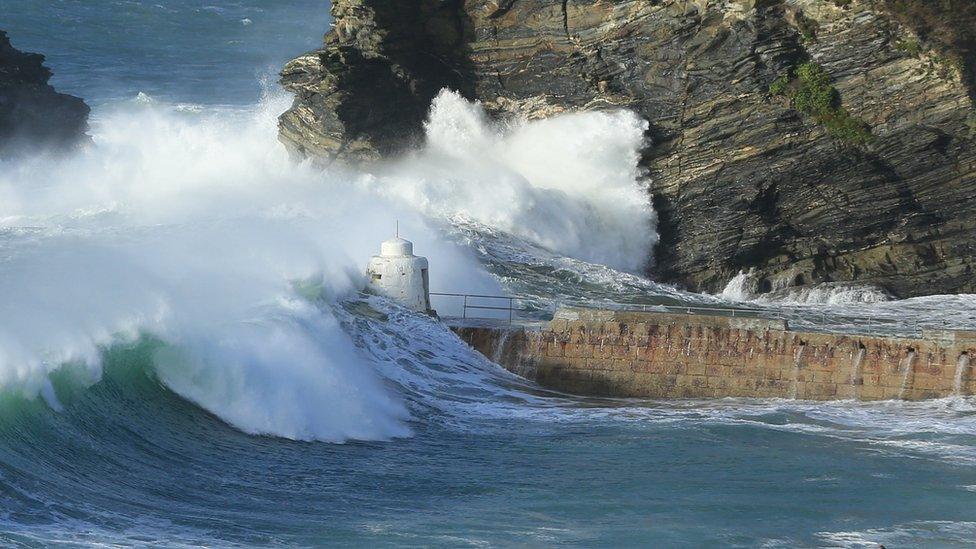Camber Sands deaths: What you need to know
- Published
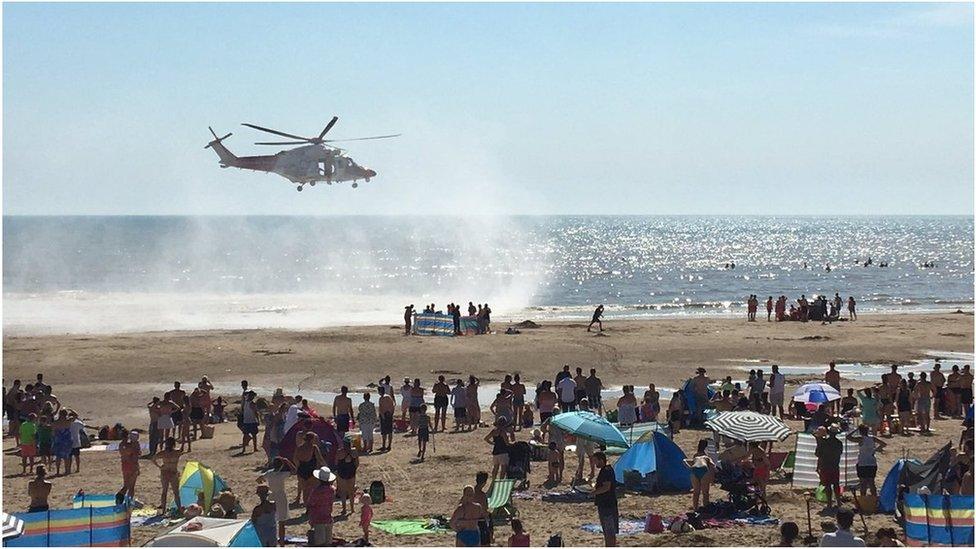
The RNLI said it 'just physically did not have the manpower' to provide lifeguards
As the inquest into the deaths of seven men at Camber Sands concludes, the BBC looks at some of the questions about the beach, the safety measures, what happened and what went wrong.

What happened?
Crowds watched in shock as three men were brought out of the water on 24 August said to be in need of urgent medical assistance.
An air ambulance was sent to the East Sussex beach along with a lifeboat, rescue teams and coastguard crews.
Police cordoned off the beach and drove on to the sands with loudspeakers telling people to stay out of the sea.
After it was confirmed the three men had died, police said they were dealing with an incredibly tragic situation, and officers acknowledged the trauma experienced by those on the sands at the time.
But hours later, when the tide went out that night, the extent of the tragedy became clear.
A member of the public found two more bodies on the shoreline after the water receded, bringing the death toll to five.

Who died?
Kenugen Saththiyanathan, 18, known as Ken, died alongside his brother Kobikanthan Saththiyanathan, 22, known as Kobi, both were from Erith, south-east London.
Their three friends who also died were Nitharsan Ravi, 22, from Plumstead; Inthushan Sriskantharasa, 23, from Grays, Essex, and Gurushanth Srithavarajah, 27, from Welling.
Two other people had also died there a month earlier.
On 24 July, Mohit Dupar, 36, from Hayes, west London, attempted to reach Brazilian Gustavo Silva Da Cruz, 19, after he got into difficulty.
Mr Silva Da Cruz died at the scene. Mr Dupar died in hospital four days later.

Why were there no lifeguards?
The inquest heard the RNLI made a recommendation in 2013 to have lifeguards at Camber Sands, but this was not taken up by Rother District Council.
Council executive director Dr Anthony Leonard said the decision not to employ lifeguards was balanced against other factors. He said the council did not have a "bottomless pit" of money and it had statutory obligations to fund.
But the hearing was also told the RNLI turned down a request to provide lifeguards at Camber 16 days before the five men drowned.
The inquest was told the request from the council was rejected by the lifeboat charity because of a lack of resources.
Darren Lewis, RNLI senior lifeguard manager, said: "We just physically did not have the manpower."
But he said following the deaths, the RNLI offered to put lifeguards on the beach.

Would lifeguards have saved them?
During the hearing, East Sussex senior coroner Alan Craze heard seasonal lifeguards were now in place.
He said: "It was too dangerous, as events proved, to have systems under which no-one was tasked to look out to sea and that has been addressed.
"It is never going to provide a guarantee that there will not be another fatality, but this was the single most obvious step to be taken."
Tristan Cawte, manager of the Camber Kitesurf Centre, told the inquest he believed lifeguards and watchtowers would benefit safety, but on their own would not prevent future deaths at Camber.
Before the inquest, one of the victim's relatives also said he believed lifeguards would have stopped the five men from drowning.
Ajirthan Ravi, brother of victim Nitharsan Ravi, said had lifeguards been present at the popular Sussex beach "they would have prevented it".
Describing the past 10 months as "tragic", he said the families hoped the inquest would improve safety at the stretch of coastline.

What has happened since?
Camber Sands was manned by beach patrols before the five men died.
They were on site throughout the summer to advise people of potential dangers, reunite lost children with parents and deal with any incidents on the beach.
Following the deaths, a petition was started to campaign for lifeguards amid growing calls for increased safety.
Temporary lifeguards were in place by the August bank holiday after the deaths.
And in February, Rother council agreed to allocate £51,000 in its 2017-18 budget for seasonal lifeguard cover this summer.
But council officials have said the beach, which is three miles (4.8km) long and nearly half-a-mile (700m) wide at low tide, could never be completely risk-free.
- Published28 February 2017
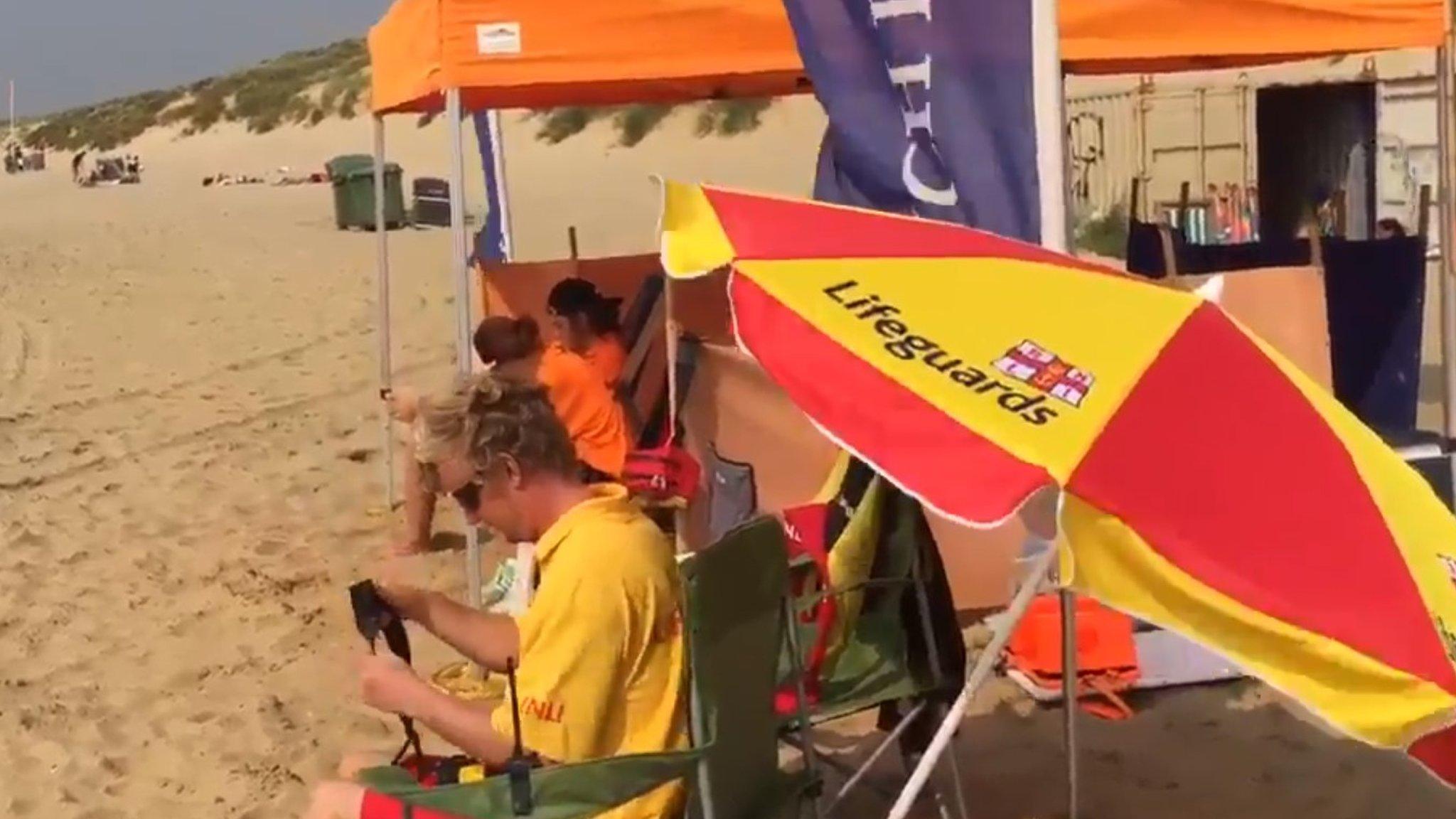
- Published26 August 2016
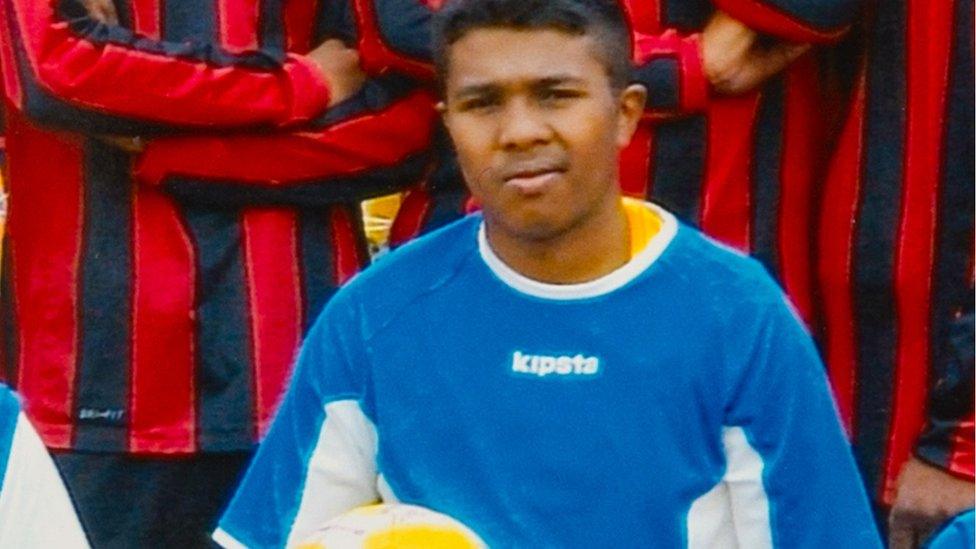
- Published25 August 2016

- Published25 August 2016
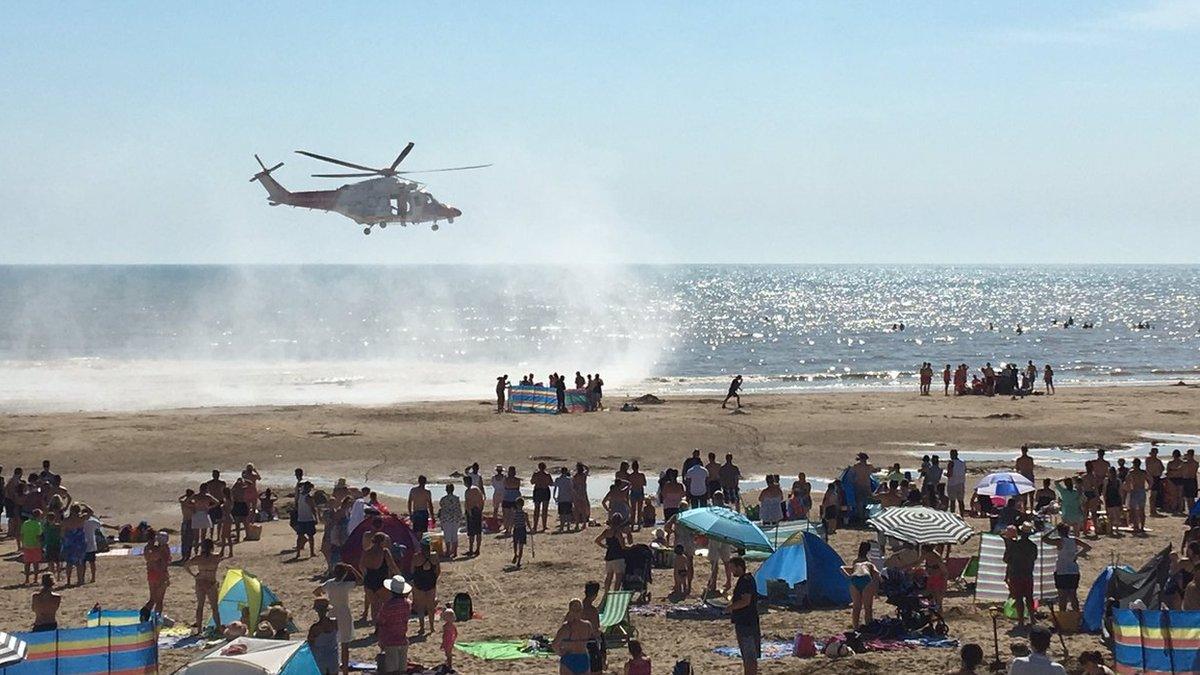
- Published24 August 2016

- Published22 August 2016
